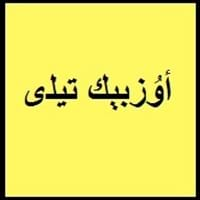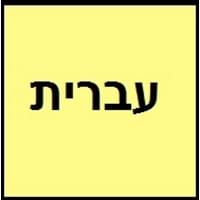Uzbek and Hebrew
Countries
Turkey, Uzbekistan
Israel
National Language
Afganistan, China, Kazakhstan, Kyrgyzstan, Russia, Tajikistan, Turkmenistan, Uzbekistan
Israel
Second Language
Not spoken in any of the countries
Israel
Speaking Continents
Middle East
Africa, Asia, Europe
Minority Language
Not spoken in any of the countries
Poland
Regulated By
Not Available
Academy of the Hebrew Language
Interesting Facts
- Uzbek is officially written in the Latin script, but many people still use Cyrillic script.
- In Uzbek language, there are many loanwords from Russian, Arabic and Persian.
- The original language of Bible is Hebrew.
- The men and women use different verbs in hebrew language.
Similar To
Kazakh and Uyghur Languages
Arabic and Aramaic languages
Derived From
Not Available
Aramaic Language
Alphabets in
Uzbek-Alphabets.jpg#200
Hebrew-Alphabets.jpg#200
Scripts
Arabic, Cyrillic, Latin
Hebrew
Writing Direction
Not Available
Right-To-Left, Horizontal
Hello
Salom
שלום (Shalom)
Thank You
Rakhmat
תודה (Toda)
How Are You?
Qalay siz?
מה שלומך? (ma shlomxa)
Good Night
Hayirli tun
לילה טוב (Laila tov)
Good Evening
Hayirli kech
ערב טוב (Erev tov)
Good Afternoon
Hayirli kun
אחר צהריים טובים (Achar tzahara'im tovim)
Good Morning
Hayirli tong
בוקר טוב (Boker tov)
Please
Iltimos
בבקשה (bevekshah)
Sorry
Kechiring!
סליחה! (Slicha)
Bye
Xayr
להתראות (Lehitraot)
I Love You
Sizni sevaman
אני אוהבת אותך (Ani ohevet otcha)
Excuse Me
Iltimos! Menga qarang
בבקשה!
Dialect 1
Tashkent
Ashkenazi Hebrew
Where They Speak
Not Available
Israel
Dialect 2
Afghan
Samaritan Hebrew
Where They Speak
Not Available
Israel, Palestine
Dialect 3
Ferghana
Yemenite Hebrew
Where They Speak
Not Available
Israel
Speaking Population
Not Available
Second Language Speakers
Not Available
Native Name
أۇزبېك ﺗﻴﻠی o'zbek tili ўзбек тили (o‘zbek tili)
עברית / עִבְרִית (ivrit)
Alternative Names
Annamese, Ching, Gin, Jing, Kinh, Viet
Israeli, Ivrit
French Name
ouszbek
hébreu
German Name
Usbekisch
Hebräisch
Pronunciation
Not Available
[(ʔ)ivˈʁit] - [(ʔ)ivˈɾit]
Ethnicity
Uzbek
Not Available
Origin
9th–12th centuries AD
1000 BC
Language Family
Turkic Family
Afro-Asiatic Family
Branch
Southestern(Chagatai)
Canaanitic
Early Forms
Chagatay
Biblical Hebrew, Mishnaic Hebrew, Medieval Hebrew, Hebrew
Standard Forms
Uzbek
Modern Hebrew
Signed Forms
Not Available
Signed Hebrew
Scope
Macrolanguage
Individual
ISO 639 6
Not Available
Not Available
Glottocode
uzbe1247
hebr1246
Linguasphere
No data available
12-AAB-a
Language Type
Living
Living
Language Linguistic Typology
Not Available
Subject-Verb-Object, Verb-Subject-Object
Language Morphological Typology
Not Available
Fusional, Synthetic
All Uzbek and Hebrew Dialects
Most languages have dialects where each dialect differ from other dialect with respect to grammar and vocabulary. Here you will get to know all Uzbek and Hebrew dialects. Various dialects of Uzbek and Hebrew language differ in their pronunciations and words. Dialects of Uzbek are spoken in different Uzbek Speaking Countries whereas Hebrew Dialects are spoken in different Hebrew speaking countries. Also the number of people speaking Uzbek vs Hebrew Dialects varies from few thousands to many millions. Some of the Uzbek dialects include: Tashkent, Afghan. Hebrew dialects include: Ashkenazi Hebrew , Samaritan Hebrew. Also learn about dialects in South American Languages and North American Languages.
Uzbek and Hebrew Speaking population
Uzbek and Hebrew speaking population is one of the factors based on which Uzbek and Hebrew languages can be compared. The total count of Uzbek and Hebrew Speaking population in percentage is also given. The percentage of people speaking Uzbek language is 0.39 % whereas the percentage of people speaking Hebrew language is Not Available. When we compare the speaking population of any two languages we get to know which of two languages is more popular. Find more details about how many people speak Uzbek and Hebrew on Uzbek vs Hebrew where you will get native speakers, speaking population in percentage and native names.
Uzbek and Hebrew Language Codes
Uzbek and Hebrew language codes are used in those applications where using language names are tedious. Uzbek and Hebrew Language Codes include all the international language codes, glottocodes and linguasphere.





